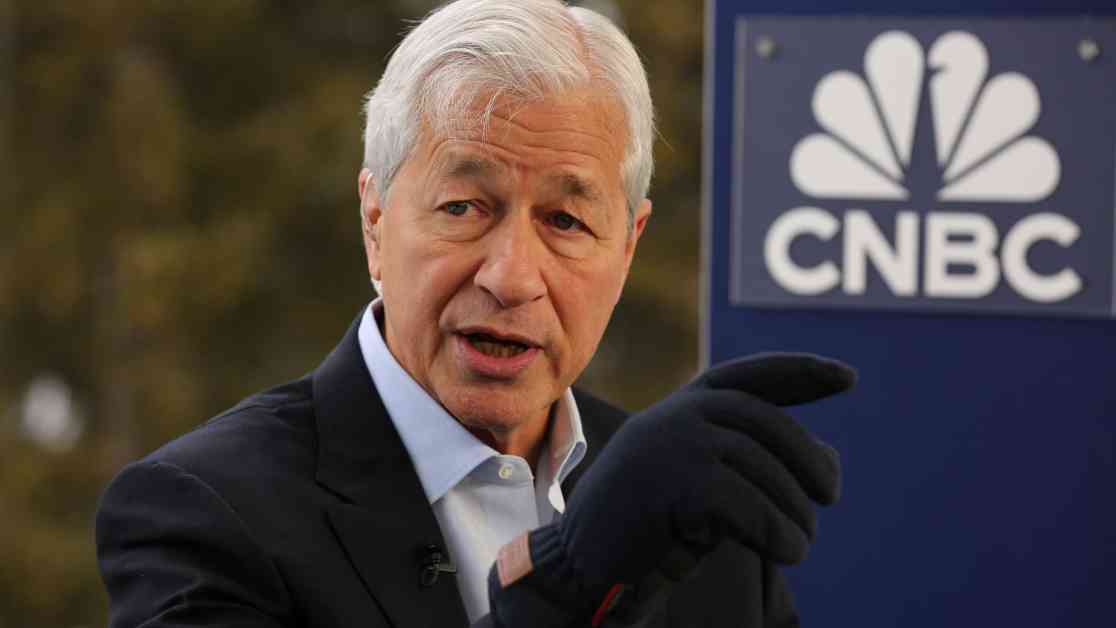Jamie Dimon Issues Stark Warning About U.S. Stock Market
JPMorgan Chase CEO Jamie Dimon made headlines on Wednesday with his stark warning about the current state of the U.S. stock market. Dimon expressed his concerns over the inflated nature of asset prices, citing risks stemming from deficit spending, inflation, and geopolitical turmoil as factors contributing to the market’s overvaluation. Speaking at the World Economic Forum in Davos, Switzerland, Dimon emphasized that asset prices are currently at historical highs, ranking in the top 10% to 15% of valuations.
Dimon’s Cautionary Tale
Dimon’s remarks specifically targeted the American stock market, which has experienced a prolonged bull run in recent years. The S&P 500 saw consecutive annual gains of over 20% in both 2023 and 2024, a feat not seen in over a quarter of a century. Even Dimon’s own company’s shares were deemed expensive by the CEO. He also highlighted concerns about the bond market, particularly sovereign debt, reaching unprecedented levels.
Expert Analysis and Insights
As one of the most respected voices in finance, Dimon’s cautious stance carries significant weight in the industry. His foresight has been evident since 2022 when he warned of an impending economic “hurricane.” Despite the U.S. economy outperforming expectations in recent years, Dimon remains wary of the implications of deficit spending and looming inflation uncertainties.
Dimon’s apprehensions extend beyond economic factors, encompassing global conflicts such as the Ukraine war, Middle East tensions, and rising threats from China. He expressed deep concerns about the lasting impact of these events on the world’s future. Additionally, Dimon voiced support for tariffs on U.S. imports if they enhance national security and revealed a newfound camaraderie with tech mogul Elon Musk.
Market Reflections and Future Prospects
Dimon’s sentiments were echoed by Goldman Sachs CEO David Solomon, who acknowledged the high valuations in the stock market. Solomon suggested that these valuations could be justified by optimism surrounding advancements in artificial intelligence and anticipated deregulation under the Trump administration. The potential relaxation of regulations could pave the way for increased mergers, consequently boosting capital market activities and driving GDP growth.
In the face of these warnings and projections, investors and industry stakeholders are left to navigate the complex landscape of the U.S. stock market. Dimon’s cautionary tale serves as a sobering reminder of the delicate balance between market exuberance and underlying risks, urging vigilance and strategic decision-making in the days ahead.

















